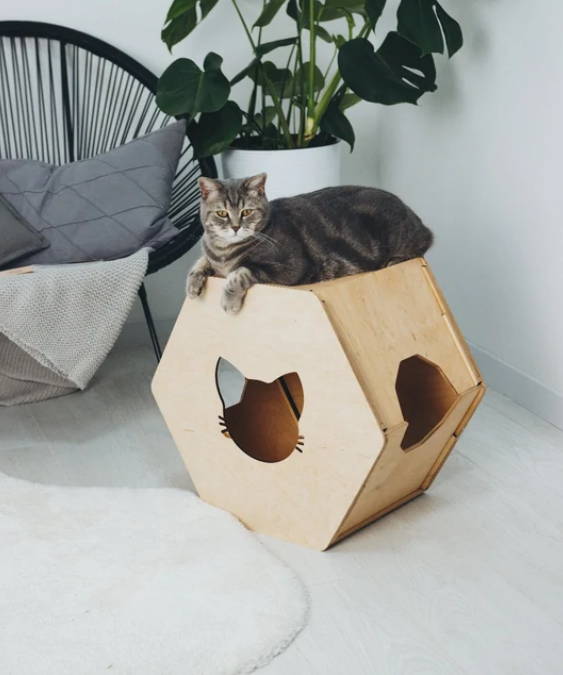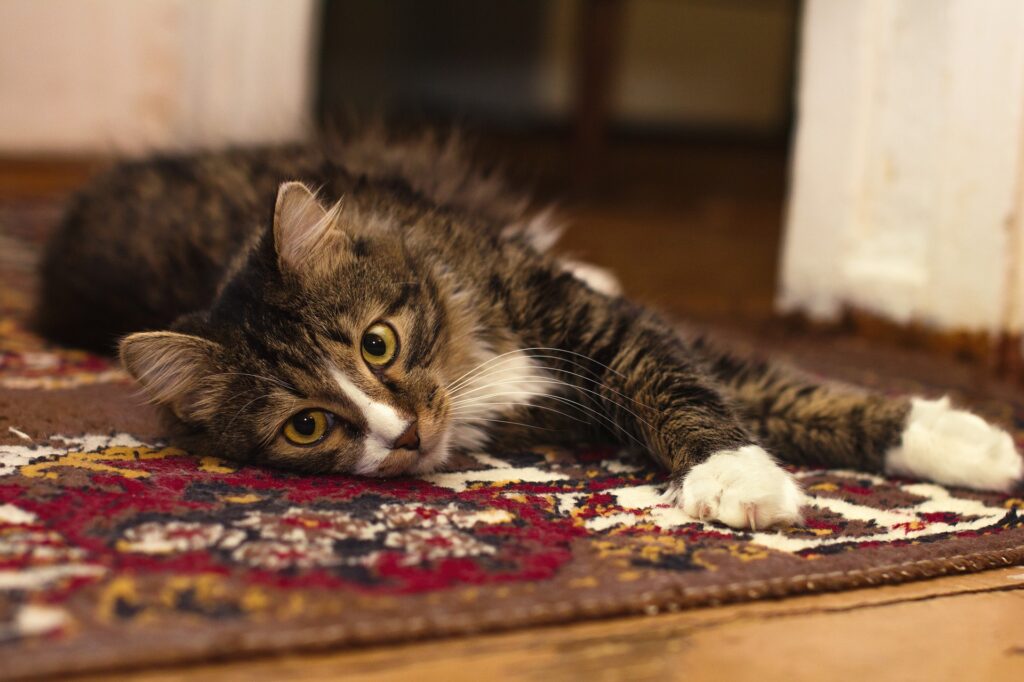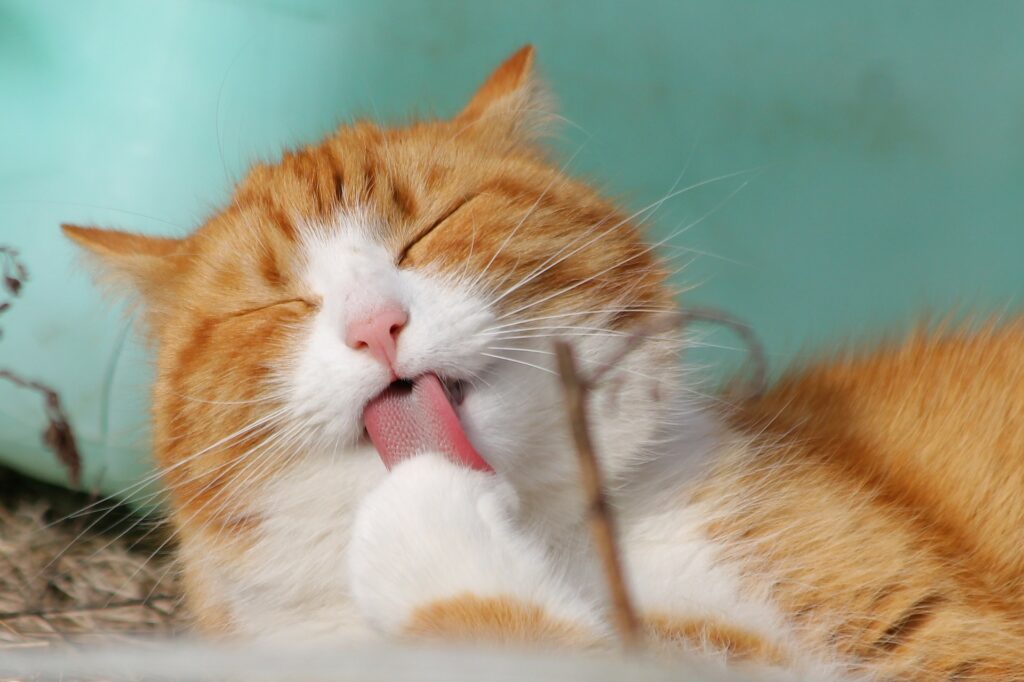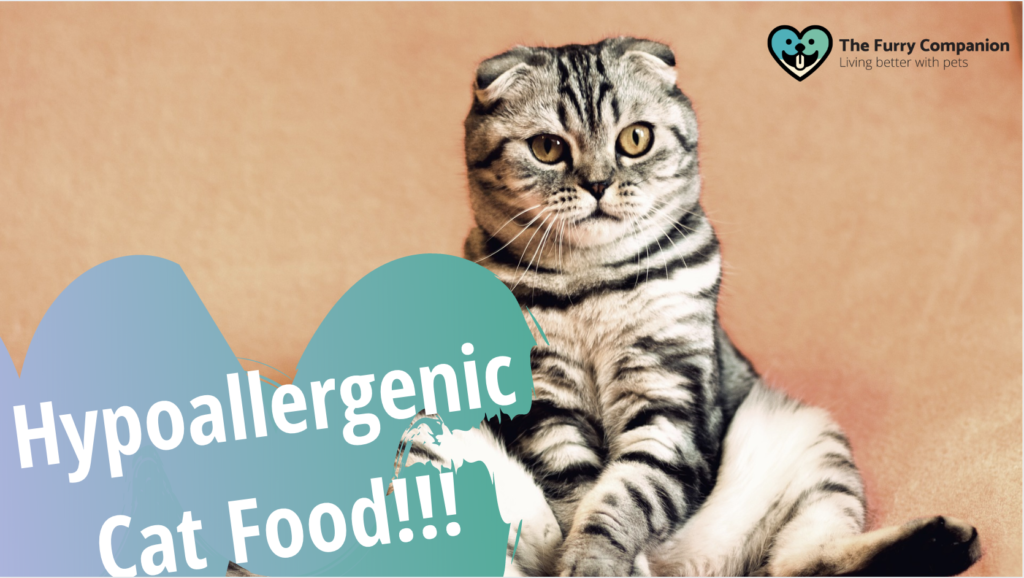
Allergies are quite common among humans, but did you know that cats can develop allergies as well? Just as different factors cause human allergies, causes of allergies in cats range from food to age, as well as breed. Food allergies are easy to address and solve because hypoallergenic cat food is available in the market.
Most cats with food allergies are averse to food items like beef, some milk products, and even fish. It’s natural for the body to develop allergies, but it doesn’t mean that it’s the end of keeping your cat healthy and happy. After all, your pet is also a vital part of keeping yourself healthy and happy.
Hypoallergenic cat food is specially formulated to address this type of aversion when it comes to feline nutrition. Allergies on cats could manifest in different ways. If you notice that your cat is experiencing vomiting or diarrhea, you might have a cat allergy situation in your hands.
Table of Contents
What Is Hypoallergenic Cat Food?

Food allergies in cats occur when their immune system identifies a particular protein, usually from food, as a hostile entity. According to Stephen D. White , DVM, DACVD and co-author, “Food allergies occur in cats about as frequently as airborne allergies do. Signs of food allergy are similar to airborne allergies except there is little variation in the intensity of itching from one season to another.” Immune systems fight off most foreign organisms in the body, regardless if they’re hostile or not.
To protect the body, immune systems equipped with intense defensive protocols react fast with abnormal intensity. These act as a signal that “something is wrong” in the body, and it needs medication. Mostly, these defensive protocols are more than enough to flush out foreign toxins.
Cats get most of their protein needs mostly from meat like fish and beef, as well as dairy products such as milk. Typical ingredients of cat food also contain protein from plants like vegetables and grain. When a cat’s immune system incorrectly identifies specific proteins in its food as “invasive,” the result is an allergic reaction.
Is Hypoallergenic Cat Food Readily Available?
Hypoallergenic cat food is the most accessible and most convenient answer to food allergy in cats. The main idea of hypoallergenic foods is to avoid triggering an allergic reaction. For this reason, these foods generally do not contain ingredients considered as common cat allergens. Cat food ingredients such as corn, wheat, dairy, and beef are common cat allergens.
Hypoallergenic cat food is carefully formulated to avoid these familiar ingredients. As a responsible fur parent, it’s crucial on your part to keep an eye out on the specific components that might trigger your cat’s allergy. Sometimes, when a foreign protein that comes from an alternative ingredient is present in your cat’s diet, your cat might develop an allergy with that particular ingredient.
Hypoallergenic cat food exists in all sorts of sizes and types. Some veterinarians advise starting cats with allergies on a prescription hypoallergenic food. However, the price range of these foods could stretch beyond your budget. Sometimes, they are not readily available in your local pet store or anywhere in the neighborhood. Luckily, there are many varieties of hypoallergenic cat food in the market.
We’ve provided an overview of what hypoallergenic food for cats is, and we’ve also touched briefly on the different types available in the market. “Exclusively feeding a hypoallergenic diet lifelong is highly successful in treating food allergic skin disease in many cats,” Tammy Hunter, DVM and Ernest Ward, DVM said. Choosing the best kind of hypoallergenic cat food depends on a variety of factors, mainly the type of allergy your cat has. So, how do you know for sure your cat has an allergy?
What Are the Internal Symptoms of Cat Allergy?

Living with your feline friend is a daily adventure in itself, but some cats can be quite sensitive to certain food items. Sometimes, food allergies among cats can occur suddenly. If you’re unsure whether your cat has an allergy or not, consider looking into specific symptoms that could disrupt your happy life with your cat.
Pet owners should always watch out for red flags such as vomiting and loose bowel movements or diarrhea. In the case of food allergies, these symptoms also come with other typical signs such as sneezing and coughing.
When your cat’s digestive system encounters foreign and seemingly invasive substances, the response is always to expel these substances. This response is one reason why your cat is experiencing vomiting or diarrhea. Another common symptom of food allergy in cats is flatulence or farting, a reaction linked to the digestive system’s work.
What Are the External Symptoms of Cat Allergy?
In other cases, the effect of an allergy is external. If you notice your cat scratching vigorously, check immediately for the condition of their skin. Red or inflamed skin is also a symptom that your cat is experiencing allergies. “Cats with allergies often present with chronic, year-round itching and skin inflammation,” Catherine Barnette, DVM points out. If your cat’s paw is swollen, the allergy may or may not be a severe case.
A more alarming symptom is when your feline’s coat is already affected. Coarse and brittle fur is not ideal, and sometimes, hair loss is also involved. When these symptoms occur, it’s best to take action quickly and bring your pet to the veterinarian for a more accurate diagnosis.
Most pet owners employ simple dietary elimination trials to diagnose cat food allergies. Removing particular ingredients from your cat’s food helps isolate the allergen. This method is a little tedious since it’s mostly trial-and-error. When performing this test, make sure that the trials are unaffected by external factors as much as possible. Eliminate items like treats, snacks, and even human food in the general vicinity while the tests are ongoing to get more accurate results.
However, remember to be careful when you observe these symptoms in your cat. Some of these signal a much more severe condition than a food allergy, so it’s still best to consult a veterinarian.
Common Food Allergens in Cats
According to statistics, cats are less likely to be allergic to food than to specific environmental allergens. Environmental cat allergies are mostly seasonal. Thus, it’s easier to deal with them because they come and go, depending on the season. Food allergies are a different matter altogether. It’s difficult to diagnose, as we’ve discussed previously.
After looking through the various ways that cat allergies could manifest, here are some of the most common food allergens in cats.
1. Meat and Meat By-Products
Sometimes, cheap cat food brands use meat by-products as filler. Meat by-products could range from organs, tissues, or fats that are considered inedible by humans. Unlike lean meat, these by-products are less regulated and might contain proteins that are otherwise unfamiliar to your cat’s immune system.
2. Corn
Another inexpensive cat food filler is cornmeal. Sadly, research has proven that cornmeal is detrimental to feline health. It often causes allergic reactions such as itchiness of the skin, as well as inflamed or flaky skin.
3. Dairy Produce
Most cats are lactose-intolerant. Few people know this because of the mainstream depiction of feeding stray kittens with milk. Cats lack the proper amount of lactase enzymes needed to digest dairy products. Without these enzymes, cats might get a dairy allergy, commonly manifesting as vomiting and diarrhea.
4. Artificial Coloring
Depending on the ingredients present, synthetic food dyes could also cause allergic reactions in cats. The practice of adding food coloring in cat food follows the same logic in human food: to appeal to more customers. Usually, inexpensive brands use this tactic.
5. Seafood
Today, fish is increasingly becoming a significant source of allergen in cat food. Because of the current conditions of waters around the world, more and more contaminants make their way not only on our dinner table but also in our pets’ food. As these contaminants are mainly unknown to us, they often cause allergic reactions to our feline friends when ingested. Some cats also develop an allergy to fish, manifesting in uncomfortable skin conditions.
Choosing the Best Hypoallergenic Cat Food
We previously mentioned that there are many factors to consider when choosing the best hypoallergenic cat food for your pet.
Because specific food ingredients cause food allergies in cats, the best hypoallergenic cat food out there are the ones with limited ingredients. From the get-go, limited-ingredient cat foods are perfect for your allergy-prone pet. They’re less likely to trigger allergies because their protein sources are limited; thus, there is less chance for your cat to develop an allergy. Limited-ingredient hypoallergenic cat food is perfect when you’ve already identified which ingredients do not cause allergic reactions when ingested by your cat.
If limited-ingredient cat food is not available in your area, come up with a list of ingredients that your feline friend is allergic to. Then, start comparing cat food according to brands with your list.
As we’ve already listed down the most common cat allergens, you can narrow down your search by avoiding these ingredients in your search. Switching to an alternative source can quickly remedy allergic reactions to a particular type of ingredient.
Just like with humans, allergies could be a permanent or semi-permanent condition. Nutrition is a vital part of pet care and maintenance. While medication is widely available, cats suffering from food allergies need a specially-formulated diet to avoid triggering their allergies. As a fur parent, your best bet is still hypoallergenic cat food to keep your feline fit as a fiddle.
Allergies are unavoidable since they are part of the immune system’s “fight-or-flight” response. It could be hard to navigate the search for the right diet for your cat. Even so, hypoallergenic cat food is widely available. Rather than struggle in keeping away from particular food items, you could rely on tried-and-tested hypoallergenic cat food to make your job as a fur parent easier.
If you want to know more about living with a pet with specific conditions, visit The Furry Companion to learn more!

FAQs
What is the best hypoallergenic cat food?
If your pet cat is susceptible to food allergy, it will be safe to give hypoallergenic food. The best hypoallergenic cat foods are Natural Balance Limited Ingredient Dry Cat Food, Blue Basics Limited Ingredient Duck & Potato, and All Natural Canned Cat Food. Check out Natural Balance Limited Ingredient Dry Cat Food here.
What food is good for cats with allergies?
For cats with allergies, hypoallergenic food is the best choice. There are a lot of these in the market, some of the best ones include Blue Buffalo Wilderness Adult, Purina One Sensitive Systems Adult, and Instinct Original Wet Food. You can buy Blue Buffalo Wilderness via Amazon here.
What ingredient in cat food causes allergies?
In most cases, cats are allergic to protein sources. Cats are commonly allergic to beef, fish, and milk products.
What’s the best cat food for sensitive stomachs?
A sensitive stomach may easily be irritated due to ingredients cats find it hard to digest. There are cat foods specifically made for the sensitive stomach like Royal Canin Digest Sensitive Gravy Canned Cat Food, and Blue Buffalo Sensitive Stomach Adult Dry Cat Food. You can buy Royal Canin Digest Sensitive Gravy Canned Cat Food in Amazon here.
What protein are cats most allergic to?
Cats are commonly allergic to fish and chicken. Allergies on cats are detected when they are exposed often to the allergen. Usually, cat allergies manifest around 2 to 6 years old.
How do I know what my cat is allergic to?
Cat allergy is manifested by signs like cough, sneeze, and runny eyes. If you suspect that your cat has allergies, it will be best to bring it to the vet. Blood tests are necessary in identifying the cause.
What is the most common food allergy for cats?
Cats are most often allergic to beef, eggs, dairy, chicken. When a cat ingest an allergen, it may affect both the skin and the gut.
Is there a cure for the food allergy of my cat?
Unfortunately, there is no known cure for the food allergy of your cat. What you can do is manage their diet to make sure that they avoid foods triggering flare-ups. You should immediately consult your veterinarian once your cat exhibited signs of allergy. Your vet will issue you recommended food for their long-term maintenance and diet.
Can a cat be allergic to cat litter?
Cats can be allergic to the dust in the cat litter. Also, scented litter can possibly cause allergic reactions.
Can cats be allergic to dry food?

